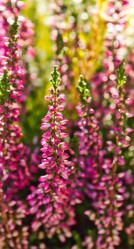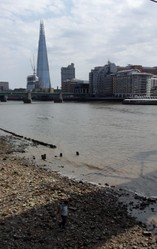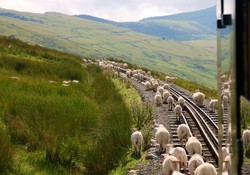While walking was generally enjoyable the one time that I did not enjoy was the annual Whit Walk, celebrating Pentecost, a tradition in the Manchester Catholic community. I walked with my school, I was nearly or just about five at the time, but the journey around the parish, Gorton Monastery, was too long and I felt desperately tired by the end. But I endured. I loved [and still love] the monastery, now a heritage centre, but that was the only negative.
Slum clearance took us away from Gorton, but occasionally I dream of revisiting my childhood home. It is in ruins. We moved to Wythenshawe, a large newly built council estate in land that was once Cheshire. The estate was open and green, but badly deficient in cultural amenities. However.we were near the airport, then known as Ringway, and the lanes around the airport were good for Sunday afternoon strolling. We would walk past the village of Heyhead, still inhabited then, and have a walk. There was a farmer's wife who sold cakes from her farmhouse door, and mother would buy some to eat with our evening meal.The place is changed now, as the airport expanded and was renamed Manchester Airport. There are busy roads rather than lanes, and Heyhead is deserted, left to brambles, ivy and bindweed.
My father gradually introduced us to larger walks when we took holidays in North Wales. We liked to holiday on the coast, but the Clwydian Range, Wales' gentlest and most walker friendly hills, were nearby. so as mother dealt with the youngest two children, Veronica and Bernard, Father would take us for a walk in the Clwydians [pronounced clooidians] We used roads, but to a young boy it was an introduction to higher places. I can recall looking down the sloping fields of sheep farming land towards the peaceful blue-green sea and then raising my eyes into the far north west, where I could just discern the Isle of Man.There was a wider world out there waiting to be known.
There were walks on the Great Orme, a headland on the North Wales Coast, steep to climb, but easy at the top,and I loved the springy, sheep-trimmed turf. But while the Orme was a great place to walk, it was an invite to go further, for as your eyes ranged westwards over the Conwy Estuary, with its proliferation of leisure sailing craft,they fell upon the stark and enchanting mountains of Snowdonia, blue-hazed in the distance, and they called with a siren song which enticed the soul.It was on the Great Orme that I learned to love mountains.
The vision of distant summits, was blue, but the memories are golden, if golden is an appropriate analogy for treasures not capable of being reduced to economic terms.Treasures that you store in the heart are more precious than gold.







 Pilgrimage. A review25 days ago
Pilgrimage. A review25 days ago
 Leo the Fourteenthon 05/09/2025
Leo the Fourteenthon 05/09/2025
 The Melsonby Hoardon 03/25/2025
The Melsonby Hoardon 03/25/2025


Comments
Gentrified buildings attracted professionals, but there was a large programme of the construction of social housing for the inhabitants.
Thank you for your comment below, in answer to my previous observation and question.
That's quite brave and visionary of the British Broadcasting Corporation to itinerate from its safe London quarters to rough Salford quarters.
Might the existing Salford Quays inhabitants have gentrified or might gentrified buildings have mustered gentrified newcomers?
Yes. It happens. Salford Quays, an estate on the terminus of the Manchester Ship Canal, gentrified when high quality building was erected, and this was associated with the British Broadcasting Corporation moved from London to Salford, taking many professionals with it.
Thank you for your comment below, on Nov. 13, 2020, in answer to my previous, previous-day observation and question on Nov. 12, 2020.
It's sad that real estate realizable for private use or for public use as an educational, elucidating cultural and historic tour is not a likely candidate because of biogeographical contexts.
Might it be possible for the "large council estate with a rough reputation" to gentrify?
I know of no difference between gold and silver lions.
Yes, it could be a possibility for Heyhead, but sandwiched between an airport and a large council estate with a rough reputation [where I grew up]does not make Heyhead a dessirable property.
frankbeswick, Thank you for practicalities and products.
A cursory internet search calls the lion and the unicorn in your product lines respective symbols of England and Scotland. Is there a different association or symbolism for gold versus silver lions?
The American southwest is famous for ghost towns, places once inhabited, particularly during boom mining years. Some business and wealthy people purchase them, for cultural, historic tour money or for private use. Would that be a possibility for Heyhead?
Fortunately, father was never out of work.
Our parents lived in inner city poverty housing conditions when Frank was young . They appreciated the countryside and nature so much.
Yes, my appreciation of natural beauty began early, but it was encouraged.
it appears you have always appreciated natural scenes. And writing this must have uplifted you, for the memories cannot be ruined by the current situation gripping the world.